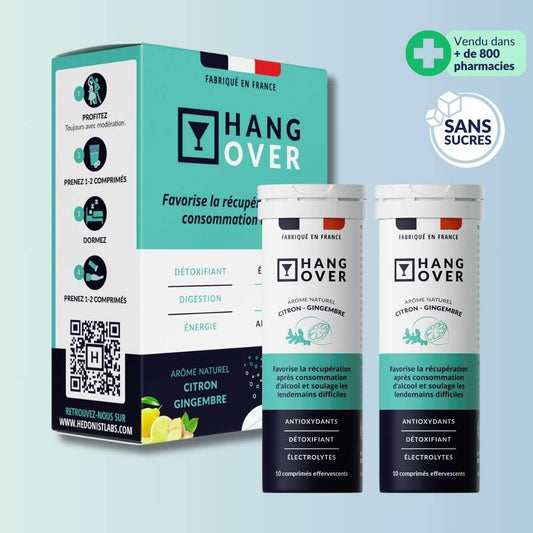Drinking alcohol is often seen as a way to unwind and relax after a long day, but the truth is that it can actually worsen symptoms of anxiety and depression. While alcohol may initially provide feelings of relaxation and calm, it is a depressant that can have negative effects on physical and mental health.
How does this happen?
Alcohol slows down brain and body activity. When we consume alcohol, it circulates in the bloodstream and reaches the brain, where it interacts with neurotransmitters that control various bodily functions, including mood, cognition and behavior.
One of the ways alcohol depresses us is by increasing levels of the neurotransmitter gamma-aminobutyric acid (GABA), which can initially lead to feelings of relaxation and calm which sounds like a good thing.
Yet, over time, this can lead to a decrease in the brain's natural production of GABA, which can cause and/or worsen symptoms of anxiety and depression.
Alcohol can also interfere with the absorption and processing of nutrients, such as B vitamins and folates, which are essential for maintaining healthy brain function. A deficiency in these nutrients can contribute to feelings of depression and other mental health problems.
It's important to note that alcohol consumption isn't the only factor that can aggravate symptoms of anxiety and depression.
Other factors, such as stress, poor sleep and lack of physical activity, can also contribute to these disorders. However, alcohol consumption can exacerbate these symptoms, making them more difficult to manage.
What are the symptoms?
When alcohol gets us down, it can have a whole range of effects on our physical and mental health. Here are some of the most common signs of alcohol-induced depression:
-Slower reaction times: Alcohol is a depressant, which means it slows down the body's central nervous system. This can result in slower reaction times, impaired coordination and reduced motor skills.
-Lowered inhibitions: Alcohol can lower inhibitions, making it easier to act impulsively or engage in risky behavior. This can have negative consequences, such as drunk driving, unprotected sex or violence.
-Mood changes: Alcohol can cause mood swings such as sadness, irritability or aggression. This is because alcohol affects levels of neurotransmitters in the brain, such as dopamine and serotonin, which are responsible for regulating mood.
-Memory problems: Excessive alcohol consumption can impair memory and cognitive functions, making it harder to remember events or recall information.
Ease the effects of a hangover with HANG-OVER!

Overall, while alcohol may initially provide feelings of relaxation and calm, it is a depressant that can worsen symptoms of anxiety and depression over time. People suffering from these disorders should seek professional help and avoid alcohol and other substances that can interfere with their treatment.
Prevent hangover symptoms with HANG-OVER. Thanks to the presence of vitamin E, grape seed extract and N-acetyl-l-cysteine in HANG-OVER, oxidative stress is considerably reduced.
Alcohol abuse is dangerous for your health, and should be consumed in moderation.




